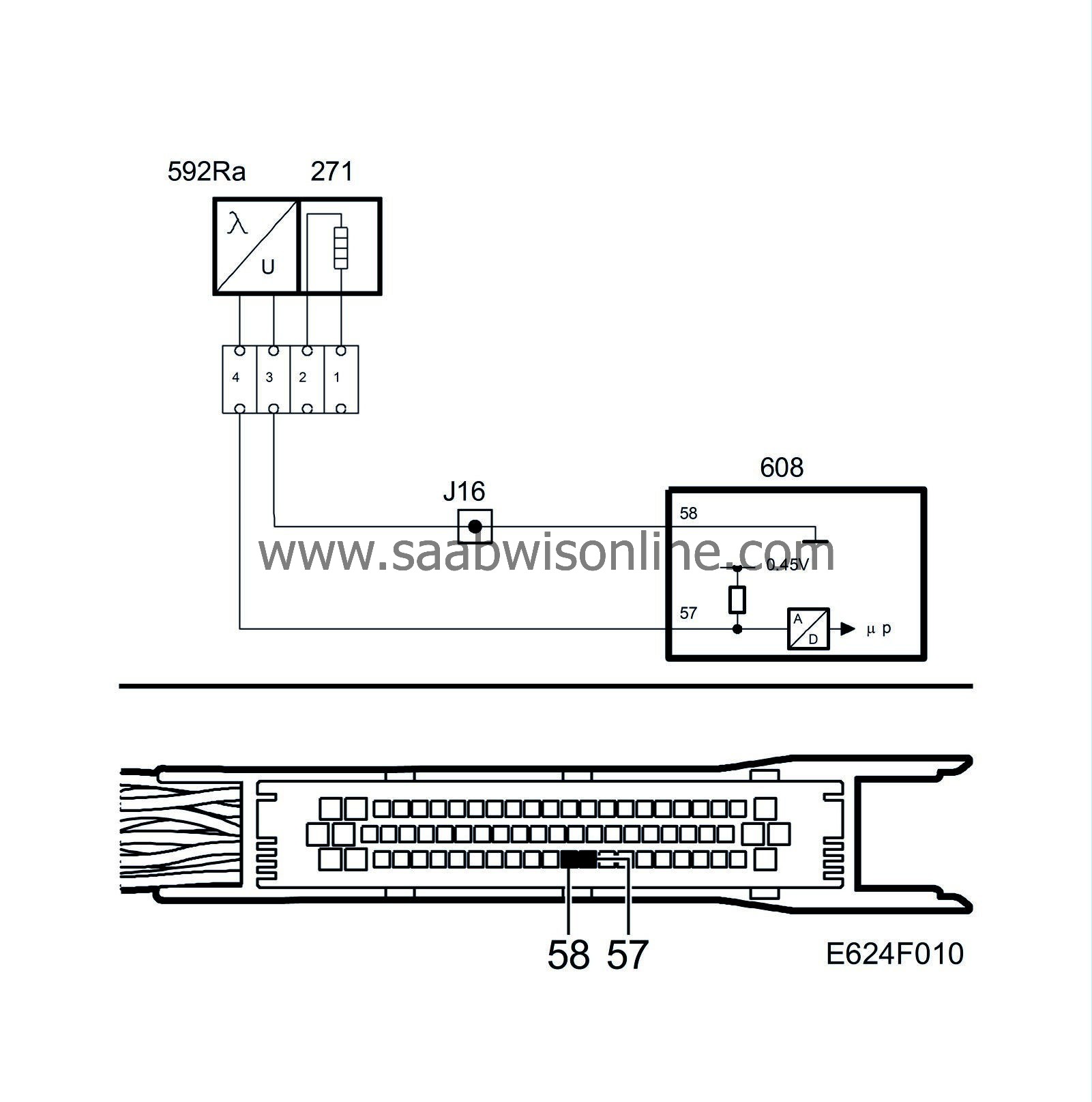P0140
Read the instructions below then
start the fault diagnostic procedure.
Symptom: CHECK ENGINE.
Misfiring can occur before trouble code is generated.
O2S Circuit. No Activity Detected. Sensor 2.

Fault symptoms
|
•
|
Misfiring can occur before trouble code is generated.
|
On-Board Diagnostics
Type of diagnosis:
|
-
|
Once per driving cycle. Interrupted when fault criteria fulfilled or OK reported. Restarts next driving cycle.
|
Enable criteria:
|
-
|
General conditions for this trouble code: When starting the engine, the atmospheric pressure must exceed 78 kPa and the engine coolant and intake air temperatures must exceed -7°C.
|
|
-
|
Engine running. Closed loop active. Coolant temperature above 70°C. Sensor pre-heating active. Vehicle speed above 0. A counter accumulates the time during which all the conditions are fulfilled. Another counter accumulates changes in sensor voltage.
|
Fault criteria:
|
-
|
Accumulated voltage change less than 500 mV when time counter reaches 500 s.
|
Dependents:
|
-
|
P0116, P0117, P0118, P0501, P0502, P1141 and P1142.
|
System reaction to a fault:
|
-
|
Transition adaptation of closed loop is blocked.
|
OK report:
|
-
|
P0140 diagnosis performed once and fault criteria not fulfilled. Fault criteria for P0138 not fulfilled.
|
Fault handling:
(See section
Fault handling III, other emission-related components and functions
for more information.)
Diagnostic help
Fault diagnosis concerns an electrical fault in connecting leads or in the sensor.
Functions in the diagnostic tool related to the fault:
|
•
|
Diagnostic status for the diagnosis.
|
|
•
|
Oxygen Sensor Value, unit V.
|
See also description of readings under
"Read Values" menu
for more information.
|
Note
|
|
The oxygen sensor receives reference oxygen from the surrounding air via the connecting cables. For this reason, electrical contact spray or grease
must not
be used on the oxygen sensor connector.
|
Checking the wiring
Jiggle the wiring harness at several points and in different directions to detect intermittent breaks and short circuits. Observe the multimeter, diagnostic tool or test lamp during the check.



